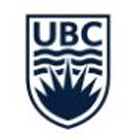- 最新资讯及文章
- 最新活动
- Find usIDP AustraliaIDP BahrainIDP BangladeshIDP CambodiaIDP ChinaIDP EgyptIDP GhanaIDP Hong KongIDP IndiaIDP IndonesiaIDP IranIDP JordanIDP KenyaIDP KoreaIDP KuwaitIDP LebanonIDP MalaysiaIDP MauritiusIDP Middle EastIDP NepalIDP New ZealandIDP NigeriaIDP OmanIDP PakistanIDP PhilippinesIDP Saudi ArabiaIDP SingaporeIDP Sri LankaIDP Taiwan, ChinaIDP ThailandIDP TurkeyIDP UAEIDP VietnamIDP Corporate
- Social
- 简体中文
What makes Canada such a popular study destination for international students?
Canada has long been a popular destination for international students who choose the country to pursue their study goals, immigration plans, or professional certification.
Canadian colleges and universities attract thousands of international students each year, not only because the cost of programs is cheaper than in most other countries, but because many courses in humanities, the sciences, and engineering are also highly rated. Costs vary depending upon the program and institution, of course, but are still highly competitive, making them much sought-after.
With affordable tuition fees, quality institutions, post-study work, immigration options, and welcoming people, it's no surprise that Canada has become a leading destination for international students. Canada has experienced a huge increase in demand from overseas students in recent years. Immigration, Refugees and Citizenship Canada issued 508,000 study permit applications (including extensions) from January 1 to July 31, 2024.
Here are some of the many reasons that make Canada the right fit for international students:
1. High Standards in Canada
The quality of education and living standards in Canada are amongst the highest in the world. Canada’s high academic standards and rigorous quality controls enable international students to earn a high-quality education that can open doors for their future and benefit their careers over the long term.
2. Affordable Education
Living and tuition fees for international students in Canada are generally lower than in other countries such as the United States and the United Kingdom. The cost of going to school in Canada is affordable and allows international students to earn globally recognized qualifications that can set them on the path to career success.
3. Diversity
As a student living in Canada, you can expect a peaceful, multicultural environment with people who are friendly and interested in learning about new cultures. With almost all of the world’s ethnic groups represented in Canada, it’s hard not to find ethnic foods and recreation activities associated with specific cultures.
4. Immigration Possibilities
Many international students decide to move to Canada permanently, after completing their studies. There are many pathways available to international students who want to transition to permanent residency.
5. Innovative and Abundant Research Opportunities
Research is one of the key components of a Canadian post-secondary education. In Canada, the government and industry support research in many areas that include business studies, computer science, engineering, and nursing. Other popular subjects include medicine, accounting, and public health.
6. Healthy and Safe Communities
The United Nations consistently ranks Canada as one of the best places in the world to live. As an international student in Canada, you can enjoy all the freedoms that protect Canadians – respect for human rights, equality, and a stable and peaceful society.
7. World-Class Language Education
Universities in Canada offer learning opportunities in English as well as French, allowing international students to improve fluency and capacity for either language as they further their studies. It has institutions like the University of Ottawa, for example, which is the largest bilingual university in the world. These bilingual programs also make students more desirable to future employers.
8. Exciting Campus Lifestyle
From Olympic-quality sports facilities to public concert halls and art galleries, Canada’s post-secondary campuses offer enormous possibilities for learning and leisure.
What are the Student Visa Requirements for Canada?
To study in Canada, students require a study permit. While a student visa authorises your entry into Canada, a study permit validates your stay in Canada. It is a mandatory immigration document for an international student.
If you hold a study permit, you must remain enrolled and make reasonable and timely progress towards completing your course.
Your study permit is always accompanied by a visitor visa or Electronic Travel Authorization (ETA). Please note that a study permit is a document that allows you to study in Canada, while a visitor visa or ETA allows you to enter Canada. An IDP counsellor can help you access the latest information and connect you with authorised immigration experts if you need assistance.
What is the Average Cost of Studying in Canada?
Your expenditure on tuition fees depends on the type of qualification and institution you opt for. Take a look Most commonly, courses in humanities, education, and arts are a little cheaper, while subjects such as medicine and engineering are likely to be more expensive. If you wish to study at a postgraduate level for anything other than an MBA program, the tuition fee is typically lower, and costs vary depending on the program.
Study program | Range of annual fees for international students (2024/2025 figures) |
|---|---|
Between CAD $18,221 and CAD $48,267 | |
Between CAD $18,221 and CAD $48,267 | |
Between CAD $4,833 and CAD $27,854 | |
Between CAD $17,000 and CAD $21,000 | |
Graduate program: PhD | Typically, similar to master's program costs |
*Please note all fee figures are indicative and in Canadian dollars
For students considering an MBA, these programs are often the most expensive, depending on where one chooses to study. The average cost for these programs ranges between CAD $46,228 for a regular MBA, and CAD $54,365 for an executive MBA. Speak to an IDP counsellor to find out more about these programs.
You can apply to various Canadian scholarships to bring down your educational expenses (see next section).
Read more about the cost of studying in Canada.
Scholarships for International Students to Study in Canada
Here are some popular government-funded scholarships available for international students to study in Canada:
S. No. | Name of the scholarship | Description |
|---|---|---|
1 | Canadian Commonwealth Scholarship and Fellowship Plan | This scholarship identifies students with high intellect from Commonwealth countries applying to programs of advanced study and research at the Master’s and Ph.D. levels. |
2 | Ontario Graduate Scholarship Program | This scholarship is for graduate students in a wide variety of disciplines. |
3 | National Research Council of Canada (NRCC) | Research associateship is offered to master’s degree holders in engineering and Ph.D. holders in natural science or engineering disciplines. |
4 | Quebec Provincial Government Scholarship | This scholarship is for students studying in Quebec. |
5 | Ontario Trillium Scholarship | First announced in November 2010 for doctoral students from around the world to study in Ontario. |
6 | Partnership Grants by the Social Sciences and Humanities Research Council of Canada | This scholarship is for Ph.D. candidates. |
7 | Banting Postdoctoral Fellowships | This is offered by the Canadian government to international students to pursue postgraduate programs within natural science, social sciences, or healthcare research. |
8 | Vanier Canada Graduate Scholarships | This scholarship is awarded by the Government of Canada to meritorious students who aspire to pursue a doctoral degree at a Canadian institution. |
Learn more about Canadian scholarships for international students
When are Student Applications Accepted in Canada?
Canadian colleges and universities offer three intakes for international students. In some universities, intakes may also be referred to as a semester. The three intakes available in Canada are:
Fall: Starts in the month of September.
Winter: Starts in January and is the best option for students who miss the September intake.
Summer: Available for limited programs and colleges, usually starting around April and May.
Know more about Intakes to study in Canada What are the Top Programs to Study in Canada? Here are some of the more popular study abroad programs chosen by international students in Canada:
What are the Top Universities in Canada?
When deciding which university to study at, it is crucial that you look at the latest world university rankings.
S.No. | Institution | QS Ranking 2024 (Globally) | QS Ranking 2023 (Globally) |
|---|---|---|---|
1 | University of Toronto | 25 | 34 |
2 | McGill University | 29 | 31 |
3 | University of British Columbia | 38 | 47 |
4 | University of Montreal | 159 | 116 |
5 | University of Alberta | 96 | 110 |
6 | McMaster University | 176 | 152 |
7 | University of Waterloo | 115 | 154 |
8 | Western University | 120 | 172 |
9 | University of Ottawa | 189 | 237 |
10 | University of Calgary | 198 | 242 |
What are the Job Prospects in Canada?
Canada has, over the past few years, seen an abundance of international students from around the world and has provided various work opportunities to students as well as working professionals. As per recent Forbes and US News rankings, Canada is considered one of the best amongst G20 countries for establishing business operations. Ample job opportunities await an international student during and after completion of their studies.
What is the Cost of Living in Canada?
It is important to explore the Canadian lifestyle and cost of living of the place where you plan to stay. While applying for a student permit, you have to prove to the Canadian government that you have enough money to meet all expenses. When planning your budget, be sure to include the following expenses:
Communication costs: Always set aside money in your budget for phone and data bills. Look for low-cost calling plans as well as student discounts. The average monthly cost will be around CAD $35.
Textbooks and supplies: Buying textbooks can be costly. Books for engineering courses, for example, might cost anywhere between CAD $250 and CAD $1000 annually. The value of courses like law, medicine, and pharmacy can be even higher. You may keep this within your budget by buying used books, purchasing digital versions, or obtaining a library membership.
Personal expenses and incidentals: Laundry, toiletries, clothing, dining out, and so on will be part of your everyday spending. This is largely dependent on the type of lifestyle you choose.
For more information on the cost of living in Canada check our Cost of Living Calculator
FAQs related to Canadian education
What are the academic exams required to study in Canada?
Here’s a list of tests you may have to take for admission to a Canadian institution:
Graduate Management Aptitude Test (GMAT)
Graduate Record Examinations (GRE)
Law School Admission Test (LSAT)
Scholastic Assessment Test (SAT)
Medical College Admission Test (MCAT)
Are Canadian qualifications recognised worldwide?
Yes, degrees from Canadian institutions are accepted worldwide and known for their quality of education.
Can students work while studying in Canada?
International students are allowed to work for 24 hours per week during an ongoing session, starting September 2024. Speak to an IDP counsellor for the latest updates on how many hours you are allowed, depending on your program.
How much does it cost to study in Canada?
Canada offers high-quality education at tuition rates lower than in many other countries. However, it is important to take into account expenses such as accommodation, food, health coverage, and travel, in addition to tuition fees while calculating the estimated cost of studying in Canada. The amount you spend on tuition fees varies depending on the type of qualification and institution you choose.
To find out more about studying in Canada, why international students choose Canadian universities, or what your options are, book an appointment with a trained IDP Canada education counsellor.




生活费用计算器
估算你需要多少资金来支付各国的生活开支,包括不同国家和住宿选择的生活费用比较。
还没决定到哪里升学?
回答五个简单问题,以获取个人化内容和课程推荐。











